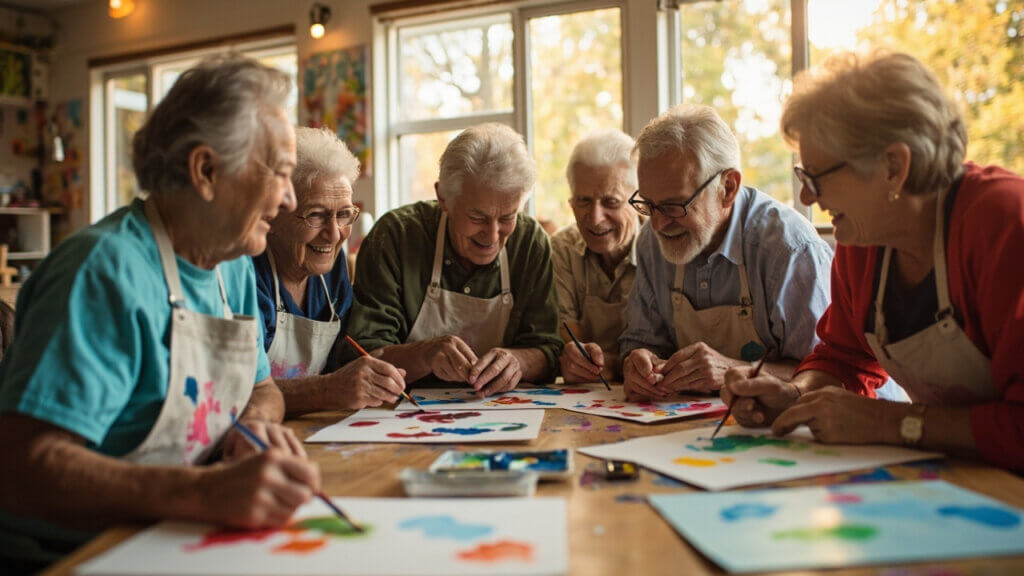Retirement is often pictured as a golden season of freedom—long lunches, golf games, and endless time to relax. But for many people, especially after age 60, it can also bring unexpected feelings of isolation. Work once provided built-in friendships, casual conversations, and a sense of belonging. When that disappears, building a new social life can feel harder than expected.
If you’ve found yourself wondering why making friends after retirement feels so different, you’re not alone. Let’s explore the realities no one really talks about—and how to create meaningful connections in this new stage of life.
The Hidden Challenges of Friendship After 60
You’re Not Starting From Scratch, But It Can Feel Like It
Most adults already have acquaintances, family, or neighbors. Yet when your daily routines shift, you may realize many of your relationships were tied to your job or children’s schedules. Suddenly, you’re left needing new sources of connection.
The “Energy Gap” of Socializing
After 50 or 60, energy levels and interests change. Late-night meetups or loud social gatherings may not appeal anymore. It’s common to prefer smaller, quieter groups—but that can limit opportunities to meet new people.
Everyone’s Busy in Different Ways
Some peers may still be working. Others may be caring for grandchildren, dealing with health issues, or traveling often. This makes it harder to find overlapping schedules for friendship.

Strategies That Actually Work
Join Interest-Based Groups
Instead of forcing small talk, connect over shared passions. Book clubs, fitness classes, or volunteer projects naturally spark conversation and help friendships grow over time.
Leverage Technology—Yes, Really
From Meetup to Facebook groups, apps can connect you to local events and like-minded peers. Don’t underestimate video calls either—they can maintain long-distance friendships and reduce loneliness.
Take a Class or Workshop
Retirement is a perfect time to explore new hobbies. Whether it’s painting, gardening, or learning a language, classes provide a built-in community of people in the same stage of life.

The Emotional Side No One Mentions
It’s Normal to Feel Awkward
Approaching new people in your 60s or 70s can feel like being the new kid at school again. Acknowledge the discomfort—it usually fades once you share experiences and laughter.
Vulnerability Builds Bonds
Lasting friendships often grow when people share real feelings. Don’t be afraid to open up about retirement struggles, loneliness, or even health challenges. Authenticity attracts genuine connection.
Friendships May Look Different Now
Instead of one “best friend,” you may build a supportive circle of casual companions, activity partners, and close confidants. This variety can actually be healthier and more fulfilling.

FAQs About Making Friends After Retirement
Why is making friends harder after retirement?
Because work provided a daily structure and regular interaction, retirement can leave a sudden gap in social contact. Building friendships requires more intentional effort than before.
What if I’m naturally introverted?
Introverts often thrive in smaller groups or one-on-one friendships. Look for activities that allow for deeper conversation rather than big social scenes.
How do I overcome loneliness after 60?
Start with small steps—attend one local event, reach out to an old friend, or sign up for a class. Loneliness often eases when you take consistent action, even if it feels uncomfortable at first.
Final Thoughts
Retirement doesn’t have to mean loneliness—it can be the beginning of some of the most meaningful friendships of your life. While making friends after 60 may take effort and patience, the rewards are worth it: laughter, support, and a renewed sense of belonging.
Take one small step today—send a message, join a group, or sign up for a class. The friendships you’re seeking might be closer than you think.
